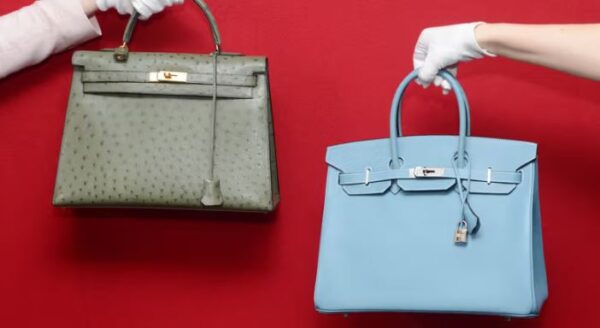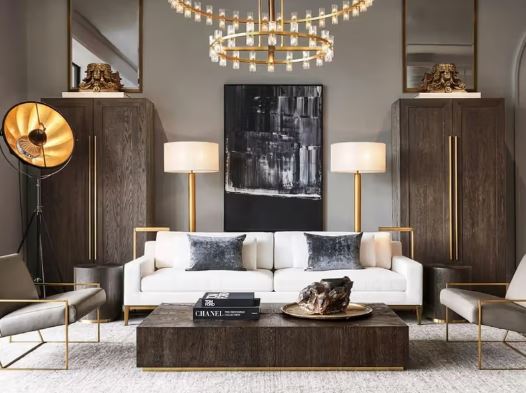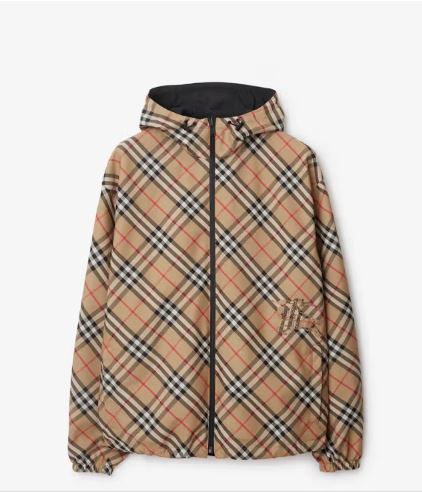Lifestyle
Top 10 luxury fashion companies in the world

In the world of global finance, the luxury market is a huge one. Although it caters to the few wealthy populations in the world, it pulls in a lot of money.
Quartz listed the the largest luxury companies in the world thus:
1. LVMH

LVMH, founded in 1987, is the world’s largest luxury goods company with a market cap of $459 billion. Its portfolio includes 75 prestigious brands, with Louis Vuitton being the most valuable. LVMH operates in various sectors, including fashion, wines, spirits, perfumes, cosmetics, watches, and jewellery. Its revenues reached €79.2 billion in 2022, and it operates over 5,600 stores globally. As a family-run business, LVMH emphasises the long-term development of its brands, often referred to as ‘Houses’ or ‘Maisons’, with all five children holding senior positions within the company.
2. Hermès

Founded in 1837, Hermès is a premium brand with €13.4 billion in sales and a $273 billion market capitalization. The Dumas family upholds the brand’s identity and fundamental principles. They are the fifth richest family in the world.
Its well-known items, the Kelly and Birkin bags, are highly sought-after and of the highest quality. Hermès operates under one brand, LVMH, while LVMH owns and operates 75 different houses. Being one of the most successful handbag brands ever, the business prides itself on its limited manufacturing volume and dedication to craftsmanship. Hermès has proven to be remarkably resilient and has grown even in difficult economic times; in 2023, its revenues reached €13.4 billion.
3. Compagnie Financiere Richemont

Richemont, founded in 1988, is a global luxury goods conglomerate with a market cap of $90.2 billion. Its focus has shifted from mining to luxury goods since 2000, acquiring Swiss watchmakers A. Lange & Söhne, IWC Schaffhausen, and Jaeger-LeCoultre. Richemont’s operations include high-end jewellery, watches, and leather goods, with a brand portfolio including Van Cleef & Arpels, Montblanc, Piaget, IWC Schaffhausen, Panerai, and Cartier.
4. Ferrari

Ferrari, founded in 1939, is a global leader in high-performance sports cars and luxury road vehicles. With a market cap of $77.7 billion, the company has a revenue of €6 billion and a net income of €1.3 billion. Despite growing waiting lists for new cars, CEO Benedetto Vigna has stated that the company has no plans to increase production. Instead, Ferrari sells to its clients, who are crucial to the brand.
If Ferrari were to increase production and sell more cars, it could risk diminishing the exclusivity that their clients value. The uniqueness, limited availability, and exclusivity of their cars enhance the brand’s prestige, making it akin to the Hermès of the automotive world. Despite this, Ferrari’s focus on respecting clients may risk diminishing their exclusivity.
5. Kering

Founded in 1963, Kering is a global luxury conglomerate boasting a market capitalization of $49.3 billion and annual revenue of €19.6 billion. Its portfolio includes iconic fashion brands such as Gucci, Saint Laurent, Bottega Veneta, Balenciaga, and Alexander McQueen.
Led by François-Henri Pinault, Kering has a rich history marked by intense industry rivalry. The company’s rise to prominence was solidified through the acquisition of the Gucci Group in 1999, a move that sparked fierce competition with LVMH, led by Bernard Arnault. Despite LVMH’s initial ownership stake in Gucci, Pinault prevailed, acquiring full control. This rivalry continues to shape the luxury landscape, evident in high-profile philanthropic competitions like the restoration of Notre Dame Cathedral.
6. Moncler

Founded in 1952 in the French Alps, Moncler initially gained recognition for its high-performance down jackets designed to withstand harsh weather conditions. The brand’s iconic status was solidified in the 1950s when it equipped the Italian K2 expedition.
A turning point came in 2003 when Italian businessman Remo Ruffini acquired the company. Under his leadership, Moncler transformed from a technical outerwear brand into a global luxury fashion label. This evolution saw the brand expand its product range and distribution channels, appealing to a younger, trend-conscious clientele.
Today, Moncler boasts a robust global presence with over 240 retail stores and 70 wholesale locations. The brand’s direct-to-consumer sales account for a substantial 80% of its revenue, which has surged from €580 million to €2.3 billion in the past decade. Moncler’s success is evident in its three distinct collections: Moncler, Moncler Grenoble, and Moncler Genius.
7. Prada

Founded in Milan in 1913, Prada is a renowned Italian luxury fashion house. Originally specialising in leather goods, the brand has expanded its offerings to include footwear, ready-to-wear, and accessories.
Under the visionary leadership of Miuccia Prada, the company transformed from a traditional leather goods shop into a global fashion powerhouse, synonymous with understated elegance and innovation. Today, Prada’s iconic designs, such as its leather handbags, are coveted worldwide, solidifying its position as a leading name in the luxury industry.
8. Brunello Cucinelli

Founded in 1978 by Brunello Cucinelli, the Italian fashion house specialises in high-end cashmere apparel. Renowned for its luxurious fabrics and timeless designs, the brand offers a range of clothing and accessories for both men and women. Cucinelli’s commitment to quality and craftsmanship has elevated the company to a luxury status comparable to established fashion houses. The company went public in 2012, with the founder maintaining a majority stake.
Known for its ethical business practices, Brunello Cucinelli has built a reputation for creating sustainable and socially responsible fashion.
9. RH

RH, formerly known as Restoration Hardware, is a premier luxury home furnishings brand renowned for its classic, timeless designs. Founded in 1980, the company has evolved into a lifestyle brand, offering a curated collection of furniture, lighting, textiles, and decor. RH’s unique retail experience, characterised by expansive showrooms and a focus on exceptional customer service, sets it apart in the industry. With a commitment to quality and craftsmanship, RH has cultivated a loyal following among discerning consumers.
10. Burberry

Burberry operates a global distribution network encompassing both physical stores and online platforms, reaching customers in approximately 150 countries.






